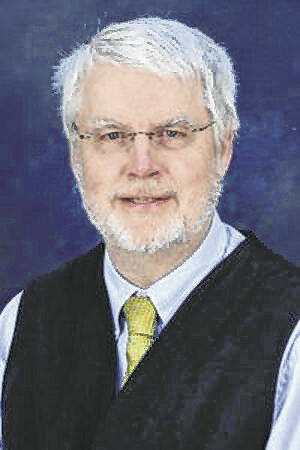One of my favorite classes in middle school was geography. I enjoyed reading about countries with exotic names, learning about their histories, languages, exports, types of government and especially religions.
One of the impressions I was left with at the time was that religions were fixed in place. Christians lived in Europe, North and South America, Russia, Australia and New Zealand. Jews lived in Israel, Europe and North America, while Muslims lived primarily in the Middle East, North Africa and parts of Southeast Asia. Hindus, Sikhs and some Muslims lived in India, while Buddhists lived primarily in Tibet, China and Japan.
As I grew up, I thought that I would have to travel to other countries to encounter different religions. In our present world, however, the geographical boundaries that once seemed to enclose religions have disappeared. We can now encounter all these religious faiths and more here in central Indiana.
As someone who has been fascinated by religion all my life, I am excited by this new reality. I know, however, that others find religious diversity disturbing. The present prime minister of India, Narendra Modi, is intent on making his country a distinctly Hindu country, limiting the rights of the Muslims, Sikhs, and members of other faiths. In Myanmar, Rohingya Muslims are being pushed out, while in China, Muslims are sent to the equivalent of concentration camps. Christians in Lebanon, Israel, and other Middle Eastern countries feel threatened, with many leaving.
Here at home, some people are so troubled by our country’s growing religious diversity that they have resorted to violence. Only last April, members of the Sikh community were massacred in our backyard at the FedEx facility in Indianapolis. That was not the first time that Sikhs have been killed in central Indiana. And the Sikh community is not alone. Incidents of harassment, vandalism and assault against religious people and places have increased steadily in our country over the last decades.
It is obvious that we all need to think about how we treat those of different faiths. Religious tolerance, long touted as a key American value, is too weak a goal. We tolerate a headache or a crying child on an airplane. Even religious understanding, if it is done at a distance by reading books or watching programs on PBS, is too low a hurdle. What we need is friendships between persons of different faith traditions.
That is why I am so excited by the second “Interfaith Understanding through the Arts and Humanities” program that will be hosted by Franklin College at 7 p.m. Nov. 11. This virtual program, which is part of the Spirit &Place Festival in central Indiana, brings two award-winning poets to Franklin College: the Muslim poet Sadiyah Bashir and the Sikh poet Preeti Kaur Rajpal. The two poets will be visiting classes virtually throughout the day and then performing their poetry that evening. The evening event is free; anyone interested can register at www.franklincollege.edu/interfaitharts.
Not that long ago, the Dalai Lama made a startling observation. Because his brother was on the faculty at Indiana University and helped found the Tibetan Mongolian Buddhist Cultural Center located in Bloomington, the Dalai Lama has visited central Indiana many times. On one of those visits, he observed that the region extending from Indianapolis to Louisville has a spiritual quality that reminds him of a particularly holy area in his native Tibet.
Whether or not the Dalai Lama is right is up to us. America’s heartland can be the place where we close our doors and hearts to those with different faiths or where people of different faiths stand shoulder to shoulder, supporting one another in friendship.
David Carlson of Franklin is a professor emeritus of philosophy and religion. Send comments to [email protected].





